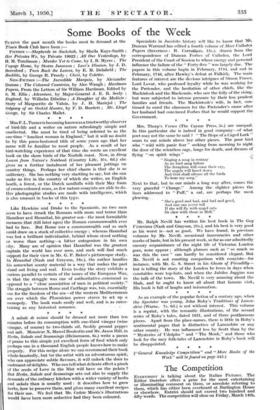Like Hawkins and Drake to the Spaniards, no two men
seem to have struck the Romans with more real terror than Hamilcar and Hannibal, his greater son—the most formidable
• menaces that (till later ages) the Roman commonwealth ever had to face. But Rome was a commonwealth and as such could draw on a stock of collective energy ; whereas Hannibal was but a brilliant individualist, behind whom stood nothing or worse than nothing—a bitter antagonism in his own city. Many are of opinion that Hannibal was the greatest captain the world has ever- seen, and such will find much support for their view in Mr. G. P. Baker's picturesque study. In Hannibal (Nash and Grayson, .18s.), the author handles his somewhat scanty material in a way that makes the past stand out living and real. Even to-day the story exhibits a curious parallel to certain of the issues of the European War, in that the struggle was one of authoritative .command as opposed to a -" close association of men in political society." The struggle between Rome and Carthage was, too, essentially one for the freedom of the sea—of the western Mediterranean sea over which the Phoenician power strove to set up a monopoly. The book reads easily and well, and is. as enter-
taining as any historical romance. • . • * * *
























































 Previous page
Previous page